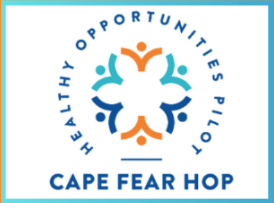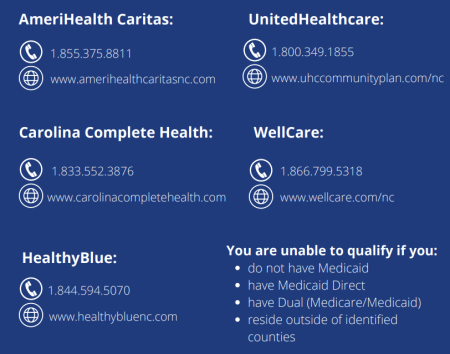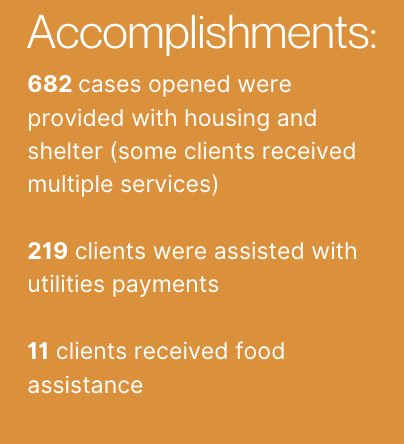Contact Information | Healthy Opportunities Pilot (HOP)

What We Do
The Healthy Opportunities Pilot (HOP) at LINC, Inc. is a state- and federally- funded program to help improve the overall health of qualifying Medicaid recipients and improve healthcare costs.
The program is an innovative initiative that aims to improve the health and well-being of Medicaid beneficiaries by addressing non-medical factors that impact their health outcomes like the lack of transportation, housing instability, food insecurities, interpersonal violence, and toxic stress. Location of resources, referrals, and monetary assistance are available to HOP participants.
The pilot program is currently operating in three large regional areas in North Carolina, with the LINC HOP serving primarily New Hanover County. LINC HOP concentrates on housing assistance and interpersonal violence issues.
Find information about Healthy Opportunity Pilots at the North Carolina Department of Health and Human Services website.
Who is Eligible for HOP Services
To qualify for Healthy Opportunities Pilot services, you must:
- Be currently enrolled in a select Medicaid program or Tailored Care Plan (i.e. Trillium)
- Live in one of the pilot counties (New Hanover County qualifies)
- Have a qualifying health need and a food, transportation, housing and/or safety need
To find out if you qualify, call your Medicaid Plan Care Manager and ask about the “Healthy Opportunities Pilot.”
Healthcare Plan Contact Information:

How to Apply
To apply, call the director of your Medicaid plan, or the HOP Navigator. For general questions, contact the LINC HOP program staff.
At a Glance | Fiscal Year ending June 30 2024
Healthy Opportunities Pilot (HOP) is the nation’s first comprehensive program to test evidence-based, non-medical interventions designed to reduce costs and improve the health of Medicaid beneficiaries. The pilot programs will provide Medicaid funding for services related to housing, food, transportation, interpersonal safety, and toxic stress. In the 2023-24 fiscal year, 839 cases were referred to Cape Fear HOP.


